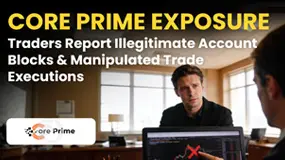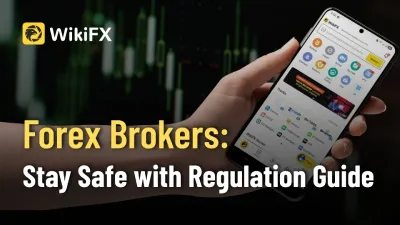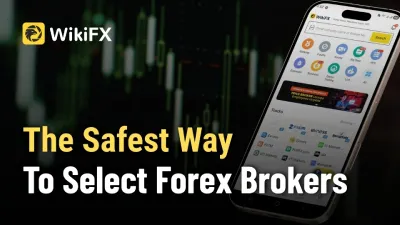Abstract:Your journey from questioning can you trade forex on webull to understanding the best way to do it is complete. The next logical step is action. We encourage you to explore the recommended brokers, and most importantly, open a demo account. It's a risk-free way to step into the world's largest market and discover the platform that will become your new home for currency trading.
You're looking at your trading options, and an important question has come up: can you trade forex on Webull? Since this platform is known for its clean design and free stock trading, it makes sense for any trader wanting to grow their portfolio to ask this question.
The short answer is no, you cannot directly trade spot forex on Webull. The platform doesn't have the license or setup for it.
However, that simple “no” doesn't tell the whole story. This guide will give you the complete picture. We'll explain exactly why Webull doesn't offer forex, look at the smart but limited ways you can get currency exposure on the platform, and then move to what we think is the better solution: specialized forex brokers. We will give you a detailed comparison of the best alternatives for U.S. traders, showing you a clear path forward.
The Direct Answer
For traders who want immediate clarity, the answer is clear. Webull is an excellent platform for many types of investments, but traditional currency pair trading is not one of them. Understanding why this limitation exists is the first step toward finding the right solution for your forex trading goals.
No Spot Forex
To be perfectly clear, Webull does not offer spot forex trading. This means you cannot open an account and trade currency pairs like the EUR/USD, GBP/JPY, or AUD/CAD. This can be confusing for traders used to all-in-one platforms, but the difference is important. Spot forex involves buying one currency while at the same time selling another on a global market without a central location, an activity that requires a specific type of brokerage setup and regulatory approval that Webull does not have.
Why Not Webull?
The lack of forex on Webull isn't a mistake; it's a result of basic business and regulatory differences. Adding a completely new, heavily regulated investment type like forex is a huge project. Here are the main reasons:
- Regulatory Complexity: In the United States, the financial markets are governed by different organizations. Securities like stocks and ETFs, which are Webull's focus, are regulated by the Securities and Exchange Commission (SEC). Retail forex, however, falls under the control of the Commodity Futures Trading Commission (CFTC) and the National Futures Association (NFA). Following this entirely separate and strict regulatory framework would require a massive operational and legal overhaul for Webull.
- Infrastructure Differences: The forex market is basically different from stock exchanges. It operates 24 hours a day, five days a week, and relies on a network of liquidity providers (major banks) rather than a centralized exchange like the NYSE or NASDAQ. A forex broker needs specialized backend systems, pricing engines, and relationships with these providers to offer tight spreads and reliable execution, an infrastructure entirely different from what's needed for stock trading.
- Business Focus: Webull has successfully created a place as a leading low-cost broker for U.S. stocks, options, and, to a lesser extent, cryptocurrencies. Their technology, marketing, and business model are all designed for this user base. Expanding into the highly competitive and structurally different world of forex would weaken this focus and require significant investment that may not align with their core business strategy.
What Webull Offers
While forex is off the table, it's important to recognize what Webull does extremely well. Understanding its strengths helps you use it for what it's built for, while seeking alternatives for specialized needs like forex. The platform provides a strong environment for a variety of other trading and investment activities.
Webull's Core Assets
Webull's offerings are focused in the securities and digital asset markets, providing a powerful toolkit for the modern investor. Here's a quick overview of what you can trade on the platform:
- Stocks & ETFs: This is Webull's main strength. It offers commission-free trading on thousands of U.S.-listed stocks and Exchange-Traded Funds (ETFs), making it a top choice for stock investors.
- Options: For more advanced traders, Webull provides access to complex options strategies on U.S. stocks and ETFs, again with a highly competitive fee structure.
- Cryptocurrencies: You can trade a selected group of popular digital currencies like Bitcoin and Ethereum. It's important to note that this is trading the assets themselves, not forex pairs involving crypto.
- American Depositary Receipts (ADRs): ADRs represent shares of foreign companies that are traded on U.S. stock exchanges. While this provides a way to invest in international companies, it is basically stock investing, not direct currency trading.
Indirect Forex Exposure
Just because you can't trade EUR/USD directly doesn't mean you're completely locked out from speculating on currency movements within the Webull system. For traders who wish to stay on the platform, there are indirect methods. When we looked at the platform for currency-related instruments, we found two primary workarounds. These methods are not perfect but offer a way to act on a currency-based idea.
Method 1: Currency ETFs
The most direct path to currency speculation on Webull is through currency-focused Exchange-Traded Funds (ETFs). These are funds that hold currency futures contracts or actual foreign currency deposits to track the value of one currency relative to another, typically the U.S. Dollar. They trade on the stock exchange just like any other ETF.
For example, if you believe the Euro is going to strengthen against the U.S. Dollar, you could buy an ETF designed to track that movement. This is the closest you can get to a traditional forex position on Webull.
Here are some examples of currency ETFs you can find and trade on the platform:
Method 2: Multinational Stocks
A far more indirect method is to invest in the stocks of large multinational corporations whose profits are significantly affected by currency changes. For instance, a U.S.-based technology company that generates 60% of its revenue in Europe will see its profits, when converted back to dollars, increase if the Euro strengthens against the USD.
By buying this company's stock, you are, in a very watered-down way, taking a position on a stronger Euro. However, we must stress that this is an imperfect and complex strategy. You are not only exposed to currency risk but also to a host of other factors: company management, competition, industry trends, and overall market sentiment. This company-specific risk is entirely absent in pure forex trading, making this a much less precise tool for currency speculation.
Pros and Cons
Using ETFs or stocks on Webull for currency exposure has a distinct set of advantages and disadvantages compared to using a dedicated forex broker.
Pros:
- Single Platform: You can manage these positions within your existing Webull account without needing to open and fund a new one.
- Familiar Interface: You are already comfortable with Webull's platform, charts, and order execution system.
- SEC Regulation: These instruments are regulated by the SEC, a framework you are likely already familiar with as a stock trader.
Cons:
- Indirect and Inefficient: You are not trading the currency directly. ETFs have expense ratios (fees) that create a drag on performance, and their liquidity is much lower than the spot forex market.
- Wider Spreads: The bid-ask spread on currency ETFs is typically much wider than the spread on the corresponding spot forex pair, making transaction costs higher.
- No Real Leverage: Forex brokers offer significant leverage to control large positions with small capital. While you can use margin on Webull for ETFs, it is not the same and is generally less capital-efficient for this purpose.
- Limited Trading Hours: You can only trade these ETFs when the stock market is open, unlike the 24/5 forex market.
Why a Dedicated Broker
While the workarounds on Webull are clever, they are ultimately not the best choice. For anyone serious about trading currencies, the advantages of using a specialized, dedicated forex broker are overwhelming. These platforms are purpose-built for the unique demands of the foreign exchange market, offering tools, pricing, and access that a stock-focused broker simply cannot match. It's the difference between using a multi-tool and a precision instrument for a specialized job.
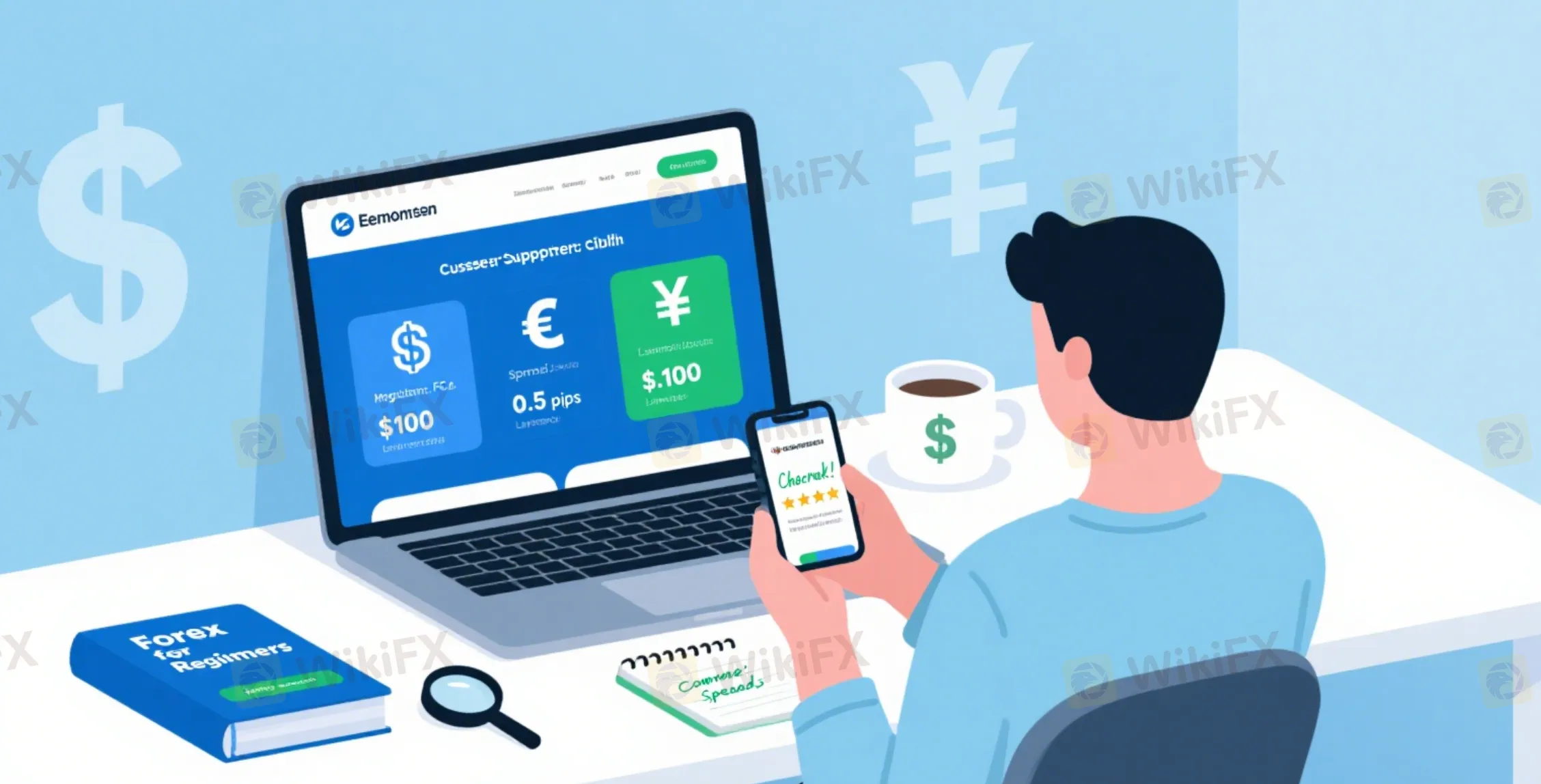
Core Specialization Advantages
Choosing a broker designed specifically for forex unlocks a level of efficiency and opportunity that is impossible to replicate on a platform like Webull.
1. Massive Liquidity & Tighter Spreads
The spot forex market is the largest and most liquid financial market in the world, with trillions of dollars traded daily. Dedicated forex brokers plug directly into this deep pool of liquidity from major banks. The result for you, the trader, is consistently tighter spreads—the difference between the bid and ask price. A tighter spread means a lower transaction cost for every trade you place, which can have a significant impact on your profitability over time.
2. Strategic Use of Leverage
Leverage is a key feature of forex trading. It allows you to control a larger position in the market with a relatively small amount of capital. In the United States, regulated brokers can offer leverage up to 50:1 on major currency pairs and 20:1 on minor pairs, as set by the CFTC and NFA. This capital efficiency is a primary reason traders are drawn to forex. It's a powerful tool that can amplify profits, but it must be used with caution, as it also amplifies losses. A dedicated broker provides the right environment and risk management tools to use leverage effectively.
3. 24/5 Market Access
The forex market operates continuously from the Sydney session open on Sunday afternoon (U.S. time) to the New York session close on Friday afternoon. This “follow-the-sun” market structure means you can trade whenever opportunities arise, day or night. This stands in stark contrast to trading currency ETFs on Webull, where you are restricted to the standard U.S. stock market hours of 9:30 AM to 4:00 PM ET.

4. Advanced Trading Tools
Specialized forex brokers provide access to industry-standard trading platforms like MetaTrader 4 (MT4), MetaTrader 5 (MT5), and cTrader. These platforms are built for forex and offer superior charting packages, a vast library of technical indicators, and, most importantly, the ability to use Expert Advisors (EAs) for automated trading. These advanced analytical and automation capabilities are far beyond what is available for ETF trading on Webull.
Top Webull Alternatives
Moving from Webull to a dedicated forex broker can feel like a big step. To make it easier, we've identified the best alternatives for U.S. traders, focusing on brokers that offer a great user experience while meeting the highest regulatory standards. This is where you'll find the tools you need to trade forex effectively.
Our Broker Criteria
Coming from Webull's sleek mobile app and straightforward fee structure, we know what users value. Our evaluation process prioritized brokers that align with these expectations while providing the necessary professional-grade forex trading environment. Our criteria were:
- Strong Regulation: Non-negotiable. All recommended brokers must be regulated by the CFTC and be members of the NFA, ensuring the highest level of security for U.S. clients.
- User-Friendly Platform: A great user experience is key. We looked for brokers with intuitive and powerful desktop, web, and mobile platforms.
- Competitive & Transparent Fees: We analyzed spreads, commissions, and account fees to find brokers that offer excellent value and clear pricing.
- Quality Resources & Support: Strong educational materials, market analysis, and responsive customer support are crucial for traders at all levels.
The Comparison
Based on our in-depth analysis, here are the top three forex brokers for U.S. traders looking for an alternative to Webull. Each offers a unique blend of features catering to different trader profiles.
FOREX.com
As a market leader in the U.S., FOREX.com offers a robust and comprehensive trading experience. It's an excellent all-rounder, suitable for both new and experienced traders. Its key strength lies in its platform variety, including its powerful proprietary Advanced Trading Platform and the popular MetaTrader 5. For high-volume traders, the RAW pricing account offers institutional-grade spreads with a fixed commission, while the Direct Market Access (DMA) account provides an even higher level of execution transparency.
OANDA
OANDA has built a reputation for being one of the most beginner-friendly and transparent brokers in the industry. Its proprietary OANDA Trade platform is exceptionally intuitive and clean, making it an easy transition for someone coming from Webull. There is no minimum deposit to get started, which lowers the barrier to entry. OANDA's pricing model is straightforward, and its powerful API is highly regarded by those who want to build their own automated trading solutions. It's our top recommendation for traders just starting their forex journey.
IG Group
IG is a global giant in the brokerage world and caters well to experienced and demanding traders. Its proprietary trading platform is one of the best in the business, offering advanced charting, extensive research tools, and access to premium features like ProRealTime. IG often features some of the tightest spreads in the industry. A standout feature is the availability of guaranteed stop-loss orders, which protect you from slippage during extreme volatility, a tool that provides invaluable peace of mind for an additional cost.
Choosing the Right Broker
With these excellent options, the final choice comes down to your personal needs and trading style. The information above provides the data, but making the right decision requires some self-assessment. Following a structured process can help you select the broker that will best support your trading career.
A 4-Step Checklist
Use this simple checklist to guide your decision and ensure you find the perfect fit.
1. Assess Your Experience Level
Be honest about your skills. Are you a complete beginner who needs a simple, intuitive interface and strong educational support? A platform like OANDA might be the best starting point. Or do you have some experience and require advanced charting tools, specific order types, and access to multiple platforms? In that case, FOREX.com or IG might be a better fit.
2. Verify Regulation
This is a critical safety step. While we have only recommended regulated brokers, you should always perform your own due diligence. For U.S. traders, this means going to the NFA's BASIC (Background Affiliation Status Information Center) database online and searching for the broker's name to confirm they are registered and in good standing with the CFTC and NFA.
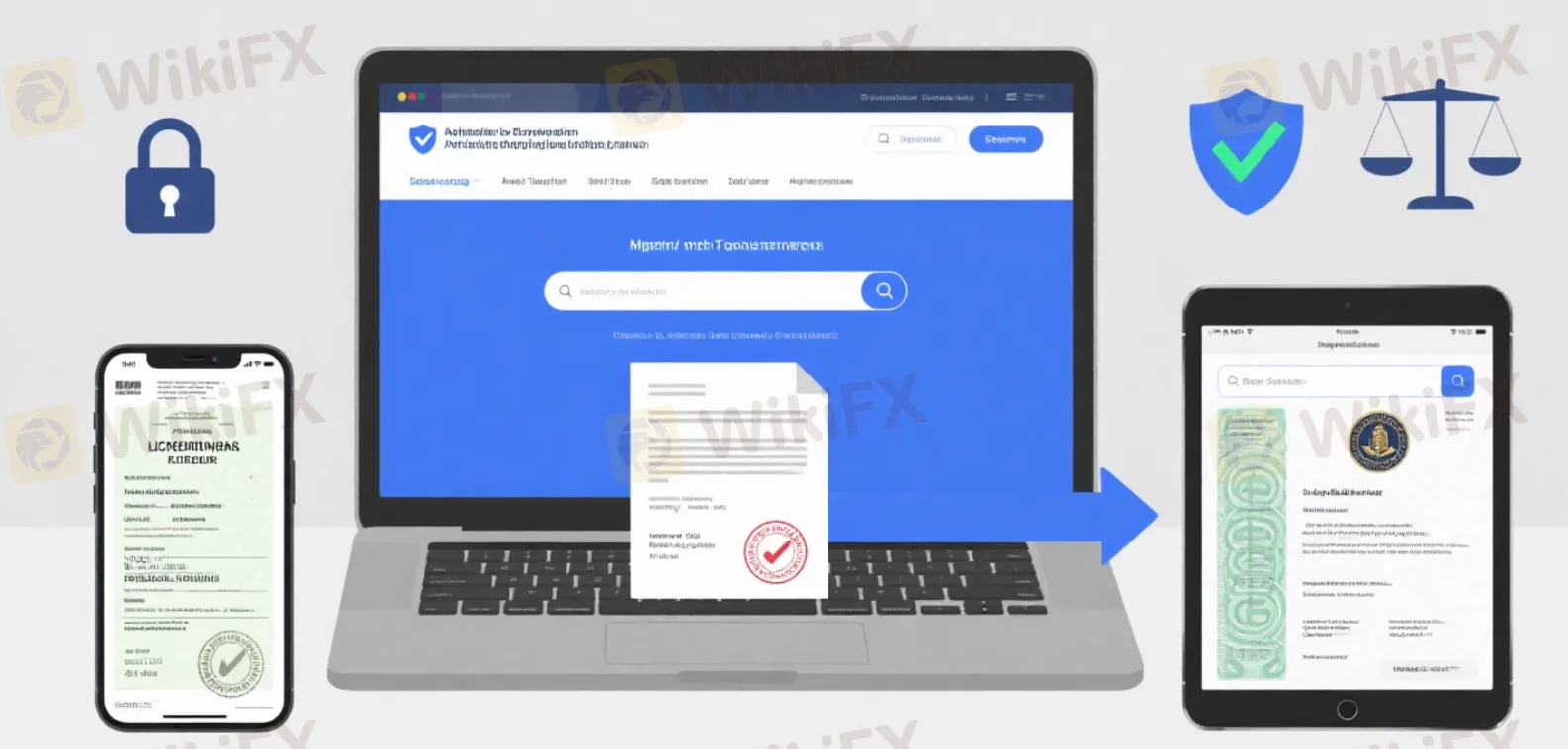
3. Open a Demo Account
We cannot stress this enough: never commit real capital to a broker without first testing their platform extensively. Open a free demo account with your top one or two choices. Spend at least a week on the demo. Test the charting tools, place trades, get a feel for the mobile app, and even contact customer support with a question. This is the only way to truly experience if a broker's platform, execution speed, and overall service feel right for you.
4. Review the Fee Structure
Look beyond the headline spread. Understand the full cost of trading. If you are a high-volume trader, a commission-based account (like FOREX.com's RAW account) might be cheaper in the long run than a standard, spread-only account. Check for any inactivity fees, withdrawal fees, or other additional charges that could impact your bottom line.
Conclusion
Your path forward in forex trading is now much clearer. You have the definitive answer to your initial question and a comprehensive understanding of your options. Let's recap the essential points to guide your next actions.
Key Takeaways
- You cannot trade spot forex on Webull. Its business and regulatory structure is designed for securities like stocks and ETFs, not currencies.
- Indirect exposure through currency ETFs on Webull is possible but is a less efficient, more costly, and more restrictive method compared to the real thing.
- For serious forex trading, a specialized and regulated forex broker is the clearly superior choice. They offer tighter spreads, strategic leverage, 24/5 market access, and advanced trading platforms.
- Brokers like FOREX.com, OANDA, and IG Group represent the top tier of regulated options for U.S. traders, each with unique strengths.
Your journey from questioning can you trade forex on webull to understanding the best way to do it is complete. The next logical step is action. We encourage you to explore the recommended brokers, and most importantly, open a demo account. It's a risk-free way to step into the world's largest market and discover the platform that will become your new home for currency trading.






